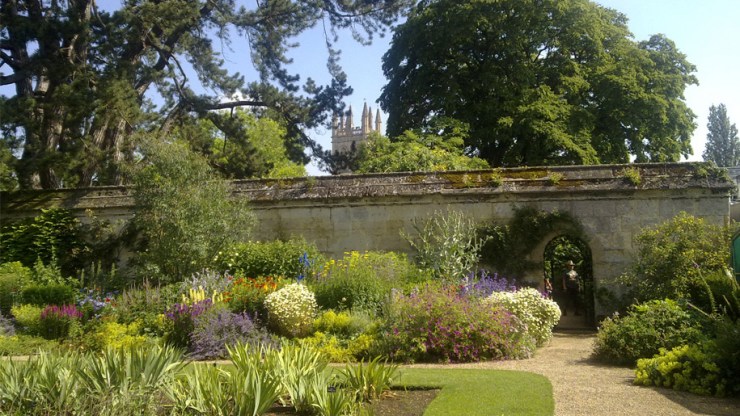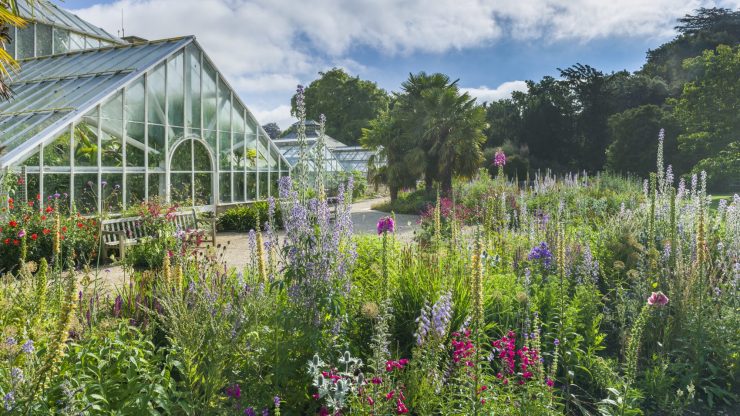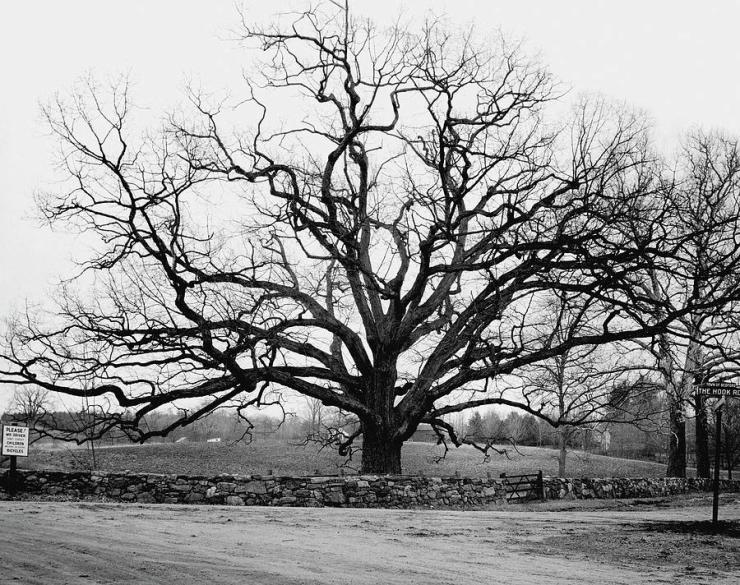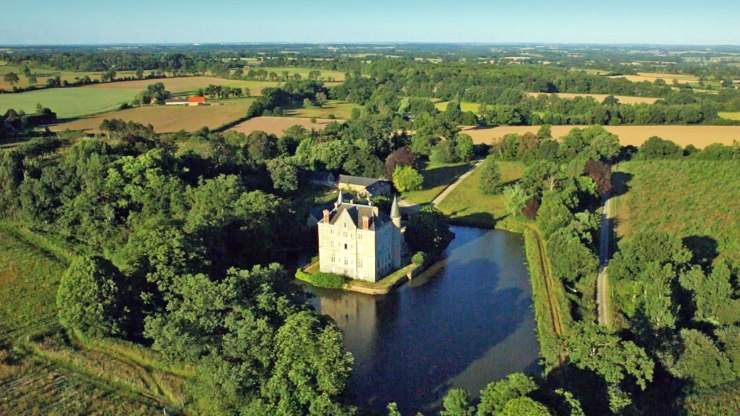




An eminent doctor, Max Pemberton wrote recently in his column about new research that shows once again that people are influenced for the better by living close to trees and fields. Apparently, those people who live near a park have fewer cravings for chocolates, cigarettes and alcohol. This is because, the doctor suspects, being close to nature reduces depression and thus a desire to binge. He also recalled a study that was done at the State Prison of Southern Michigan in the U.S. during the Seventies. Half of the prisoners’ cells looked out over rolling farmland and trees, while the other half looked out onto a bare brick wall. It was found that those who had a green, rural view were 24 percent less likely to have physical or mental health problems, which proves just how important green spaces are for our mental health. By coincidence, recently I had a similar experience when staying in a hospital that although private, had room views akin to those on the bad side of the prison.

One whole side of my room was glass, which gave me the view of a brick quadrangle. Drab and forbidding, it was made to look even more industrial by the flat roof filling the entire middle of the quadrangle. The glass window had to be kept curtained at all times as it was never cleaned and literally dripping with dirt. It was the most depressing sight that I have ever seen. As I wasn’t a violent prisoner, I didn’t develop urges to attack anyone or to destroy anything but I could see the connection. And all that was needed was the imagination of someone in the chairman’s office to provide clean glass that would allow a view of blue sky, fluffy clouds and a flock of birds, a few potted green plants or dwarf trees in tubs on the roof, and that would be enough to distract and lift the spirits of patients often undergoing unpleasant procedures. I am not going to name the hospital in question but instead, I will write to the powers there that are blissfully unaware of the importance of nature in our daily life, but especially in hospitals, and suggest some changes based on the study in Michigan.

It is impressive to see the beautiful gardens at Oxford and Cambridge colleges. Whether they were consciously created to stimulate the students’ learning ability or not, it certainly works. There are even books about the college gardens, and once visited, they are remembered forever. Visiting Darwin College in Cambridge, I was lost in admiration at seeing wisteria which had arched itself over an entire tower, with a waterfall of flowers cascading over the doorway in spectacular abandon. Looking at their website, I realised that I wasn’t the only one so affected. I have a picture of this wisteria on my desk, and it was an unforgettable, spirit-lifting encounter.


Many students make often daily visits to Cambridge and Oxford Botanic Gardens. Created to further research, they attract visitors because of the unseen anywhere else (apart from Kew Gardens) diversity of plants with fascinating, exotic names. To students under the stress of exams, the gardens provide a calming, relaxing and stimulating refuge from their busy and noisy college life.




Ten years ago, through my own carelessness, I ended up in hospital. It was winter and while the large hospital was airy, clean and well run, the weather outside and the treatment could have easily made me feel out of sorts. It didn’t because the large windows of my room were facing an enormous oak tree, growing just a few yards away. The bare, dark branches of the oak were etched against the pale-grey of the overcast sky in perfect symmetry. A group of chirpy blackbirds was jumping from one branch to another to warm up after the cold of the night. As soon as the curtains were drawn open in the early morning, I watched the tree a great deal. The beauty of the perfect structure of the tree, its imposing stature, and the busy lives of the birds on it, kept me distracted from the hospital procedures and feeling every day better and better. I will always remember this oak and be grateful for its healing powers.


There is a reverse trend to use rather than to sell school playing fields. Some schools even have an allotment-type space where the children learn how to grow vegetables that the school cook can use in the kitchen. The activity takes children away from their playstations and makes it easy for them to like and eat all the vegetables that they grow themselves. Being in the fresh air and getting their hands dirty is greatly beneficial to their wellbeing, to the feeling of belonging to a little community, and to developing an interesting vocabulary, what with all the plant names, the different types of soil….. It can only be highly recommended.

One of the most popular much-watched programmes is a Channel 4 documentary of the lives and work of two greatly talented people, Dick and Angel Strawbridge. Five years ago they bought a dilapidated, abandoned for several decades, chateau in the Loire Valley in France. Their fairy-tale Chateau de la Motte Husson was stunning on the outside but inside there was no hot water, at least a hundred crumbling windows, not to mention piles of dead flies.


Dick is an engineer with talent, not only for restoring falling-apart buildings but also for designing something spectacular from almost nothing. Angel, a stylist and designer extraordinaire, transformed the chateau into a place of beauty, luxury, and glamour. You may well ask why I am writing about them in a post about nature bringing happiness to us? I included their story because what they have achieved outside the chateau is remarkable in many ways. When they met in London, Angel, who lived in the East End of London and never had a garden, was an urban girl. On hearing of Dick’s plans of finding somewhere to grow everything and live off the land, said firmly: ‘I will never be a land girl.’ Forward five years on, and they have created a wonderful beyond words walled garden, and the large borders of flowers are used for creating bouquets for the chateau and their wedding business. Their two young children enjoy a childhood of sailing on their lake, running free and helping to gather all the fruits and vegetables that are so luscious. Often the family sits on the grass and they all tuck into huge wedges of freshly picked melon or strawberries. There are chickens and geese and ducks, and the children collect the eggs and then help Dick to make pancakes. Angel now is so passionate about their rural idyll that she says they will never leave. In her own words: ‘What is there not to like?’ Their biggest achievement is creating for their children a childhood that will lead to a stable and happy adulthood.

In the post about the last Chelsea Flower Show, I wrote about the Back to Nature garden designed by Kate, the Duchess of Cambridge. It was my favourite because it provided a place for children to explore, to learn about nature and to be as wild and free as possible. With a treehouse, and trees to climb, a willow tepee, a little shallow brook and so many plants that children could play hide and seek for hours, it was a perfect garden for creating happiness. Kate’s garden was so admired that she is now designing another one in the RHS gardens at Wisley.

My own experience of happiness starts with my garden. I have been deeply influenced by the blueprint of nature equals happiness portrayed in minute detail in the book written by Frances Hodgson Burnett, ‘The Secret Garden’. I write often about this book because it is the best advice one can get on how to lead a meaningful, happy life. It is also one of those books that can be read at any age, not only in childhood. Being in my garden, surrounded by vivid colours of plants and flowers, roses in particular, and by breakfasting birds, bees, butterflies and other insects I look around in wonder and say to the universe ‘I don’t want to die!’

Every plant show or gardening programme includes the presenter saying passionately to the camera and us, the viewers: ‘There are 23 million gardens in this country and if we could join hands with our neighbours, we could create an ecosystem that would reduce significantly pollution, help the pollination of bees and butterflies, among others, save hedgehogs, and create healthier, happier lives for ourselves, our children, their children, and even save Earth from destruction.’ But is anyone listening? That is the question…


I am going to quote Dr Max Pemberton again as his views on a long and happy life are important: “Some years ago, when I worked in a dementia clinic, I used to see an elderly couple who had an interesting dynamic. They’d been together for nearly 50 years and they were devoted. The husband had been a university lecturer and when diagnosed with dementia, was horrified that the thing he valued most – his mind – was slipping away from him. But what was striking about his wife was her relentlessly upbeat nature. This was despite a traumatic past – she had been in a Nazi death camp as a child and none of her close family had survived. When the camp was liberated, she’d come to the UK to live with distant relatives. A witness to so much horror, she told me that it had prompted her to make a resolution simply to laugh at life from then on. Yes, she was understandably devastated by her husband’s diagnosis, but never wavered in her determination to look on the bright side. ‘What good will moping around do?’, she asked. So every time her husband forgot something or became confused, she reassured him that it didn’t matter. They’d find some aspect to laugh about. ‘You are still the love of my life, even if you are a bit ga-ga at times’, she said to him once in the clinic, and they both laughed like drains. Being optimistic isn’t about being in denial, it is about trying to find the positives in life, even in dire situations. So this woman would celebrate when her husband came back safe from the shops and not worry that he had forgotten the milk or some other item she needed. It occurred to me that it was precisely this approach that was helping him cope so well.
Her relentlessly optimistic outlook rubbed off on him, so he did not worry or become distressed when he forgot something or became confused. He was less anxious – anxiety can make memory worse – overall. In truth, his wife’s optimistic approach to life’s problems did him more good than anything medicine had to offer. And so I was not surprised this week to read the findings of a ground-breaking study by researchers at Michigan State University and Harvard. In the process of monitoring the progress of more than 4,000 heterosexual couples for up to eight years, they discovered that dementia sufferers with optimistic spouses suffer less cognitive decline and memory loss. They aren’t saying that having a cheery husband or wife will prevent dementia, but it is fascinating that the kind of people we surround ourselves with can have an effect not just on mental conditions but also on something with a clear biological basis such as dementia. Our companions, depending on their own outlook, benefit us in ways beyond the psychological and actually have an impact on fundamental disease processes. It got me thinking about the mechanism at play here. I wonder if having a positive partner means you tend to be upbeat yourself, and therefore eat better or take exercise?
We know that a wide variety of elements contribute to someone’s wellbeing. These vary from social factors, such as poverty, to conditions like schizophrenia and alcoholism that have, at least in part, a genetic component. Someone’s upbringing plays an important role, as do factors such as disability, chronic pain, employment, and education. While we know that being single — and its link with social isolation — increases the risks of some mental health problems, the impact of the personality and temperament of someone’s partner is largely unknown territory.
And if it is ever considered, we tend to think about it in negative terms — how an abu sive, critical or overbearing partner can have a negative effect and hamper a patient’s recovery. What is new about this study is that it has uncovered evidence that the reverse applies.‘When your partner is optimistic and healthy, it can translate to similar outcomes in your own life,’ said William Chopik, co-author of the study. ‘You actually do experience a rosier future.’ It gives new meaning to the old saying: ‘Happy wife, happy life.’
sive, critical or overbearing partner can have a negative effect and hamper a patient’s recovery. What is new about this study is that it has uncovered evidence that the reverse applies.‘When your partner is optimistic and healthy, it can translate to similar outcomes in your own life,’ said William Chopik, co-author of the study. ‘You actually do experience a rosier future.’ It gives new meaning to the old saying: ‘Happy wife, happy life.’
Nature is an institution, if have the power of learning.
LikeLike